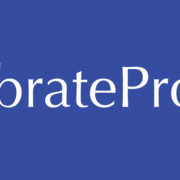The Fantastic Five: Randolph Co. Attorneys Unite To Fight Legal Aid Budget Cuts
Editor’s note: As we #celebrateprobono this week, we take a look at one group of lawyers’ innovative approach to helping their community.
When Thomas Robins heard about a $1.5 million cut to the budget for Legal Aid of North Carolina in 2015, he realized LANC would no longer be able to send an attorney to Randolph County to represent victims of domestic violence.
Without hesitation, Robins, a partner at Bunch, Robins & Stubblefield in Asheboro, assembled a team of attorneys — Sarah Lanier, Jennifer Bennett, Margaret Megerian and Brooke Schmidly — to not only temporarily fill this gap, but to ensure a long-term commitment to addressing the unmet legal need of domestic violence victims in Randolph County. Robins developed a weekly on-call rotation system for his team of attorneys to represent victims of domestic violence in Randolph County in domestic violence hearings.
Since spring of 2016, the group has collectively represented 114 victims of domestic violence in Randolph County.

Fantastic Five: Attorney Tom Robins, center, assembled a team to help Randolph County when funding to Legal Aid was cut: Jennifer Bennett, Margaret Megerian, Robins, Brooke Schmidly
and Sarah Lanier.
Janet McAuley Blue, managing attorney of the LANC Greensboro office , who has worked for LANC since 1980, said she has “never seen a group of people just decide to get together, agree to cooperate and do this kind of representation.” Over the years, she has seen many individuals do great pro bono work, but “not anything like this, where there is a group that has basically agreed to cover an entire area of law in a county.”
“It is tremendous,” Blue says. She pointed to the system as “the kind of model for pro bono service that should be emulated everywhere.”
In 2017, the General Assembly eliminated the Access to Civil Justice Act, and the accompanying criminal case filing fee provision, resulting in a loss of $1.7 million in combined funding to the North Carolina State Bar for legal services. This has left Legal Aid, Charlotte Center for Legal Advocacy (formerly Legal Services of Southern Piedmont), and Pisgah Legal Services in an all-too-familiar predicament: insufficient funds for staff and serious threats to their ability to maintain services to clients, especially those in rural counties.
Facing the 2015 cuts, Robins took the initiative to assemble his Fantastic Five team. Sarah Lanier, partner at Neely & Lanier and one of the four attorneys Tom contacted, described him as the “go-to family law attorney in Randolph County,” who has always been “generous of his time” when it comes to mentorship in the family law community. “So it’s really difficult to say no to him,” she says.
Robins assigns the rotation schedule for three months, which allows the attorneys to know their set court dates well in advance, making the commitment more manageable on top of their individual practices. “We work amongst ourselves if someone has a conflict,” Lanier says, “we understand that things happen in life.”
Being on-call once every five weeks sets an expected commitment from each of the attorneys, but is not too consuming because they share the workload consistently over time.
“I understand how people have limitations on time and what they can do in terms of their practice and I understand that people starting out might not be able to do it, but it helps you develop professionally,” Lanier says. “You’re appearing in court in front of the attorneys and judges and doing good for the community.”
It’s Not A Superpower
According to a study cited by the N.C. Equal Access to Justice Commission, the availability of legal services in the county of residence of victims is one of the most important factors in decreasing the incidence of domestic violence.
The Greensboro office receives most of its domestic violence referrals from the Family Crisis Center in Randolph County. LANC paralegal Laura Marsh along with two other paralegals conduct intake and screening, an in-house attorney reviews the case for merit, then Pro Bono Coordinator Renee Gabriel Alford refers the cases to the attorney on-call that week. Renee averages 4 to 6 case referrals a week, ranging from 5 to 7 hours of pro bono work.
The togetherness of the Randolph County community, from judges to opposing counsel, cultivates the type of collaboration required to provide these continued legal services.
Believe it or not, this group of attorneys isn’t made up of the law school pro bono superstars who did 500-plus hours of pro bono as students. “I did not do pro bono work in law school” was more like it. Being in a small town, however, pro bono work is inevitable.
Margaret Megerian, an NCBA member, started doing pro bono work in her practice after she participated in the North Carolina Bar Foundation’s annual 4ALL Day of Service.
“It showed me how much people need pro bono,” she says. A member of the NCBA Family Law Section and an associate at Megerian & Wells in Asheboro, Megerian recognizes that Randolph County has “a lot more need than resources, especially when it comes to domestic law.”
She said her experience doing this work has been rewarding.
“It shows a good will in the profession, the fact that lawyers do this for free,” Megerian says. “Most people are grateful and surprised that we are willing to do this. It raises the level of public opinion of what lawyers are like. We are not all greedy and crooked. I like that. Like I said, it makes me feel good when I get to help someone who wouldn’t have gotten that help any other way.”
Before this team of attorneys began this representation, clients would only be able to speak with a Legal Aid attorney over the phone. Now, clients are able to meet an attorney face-to-face without having to endure lengthy transportation and costs to do so. The attorneys are familiar with the judges and the nuances of the Randolph County Courthouse.
United Way of Randolph County, a community partner of the Family Crisis Center and Legal Aid of North Carolina, has served as a steadfast funding contributor to these legal services for victims of domestic violence. Elizabeth Mitchell, chief professional officer for United Way of Randolph County, describes the contribution of these five attorneys as “unprecedented,” in her 14 years at United Way. Their assistance allows United Way dollars to “go even further toward meeting the needs of this vulnerable population.”
The Fantastic Five give back to the program by donating their time, energy and expertise rather than waiting on a return of the funding to provide an attorney to fill the space, she said.
“I’m not sure you could put a price on it,” Mitchell says. “If we had 25 attorneys like them we would be flying.”

 By
By 
